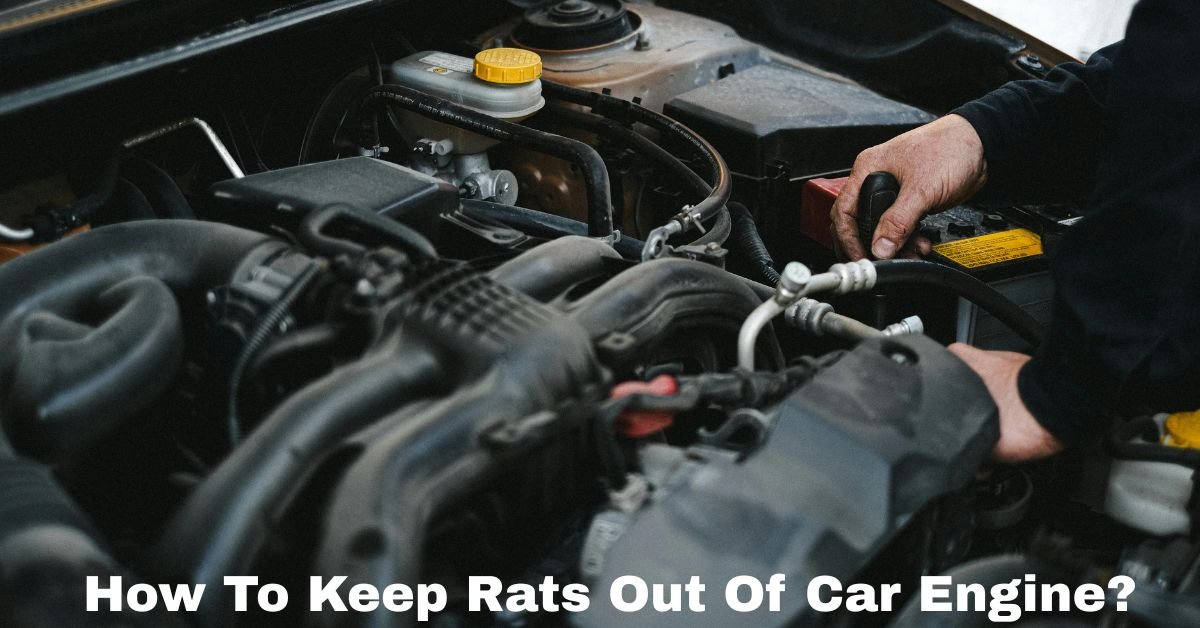Rats and other rodents might seem like a minor nuisance—until they turn your car engine into their personal home or chew through essential wiring. Unfortunately, this is more common than many people realize. Especially during colder months or when vehicles sit unused, the warm, sheltered space under the hood becomes prime real estate for rats.
If you’ve ever popped your hood only to discover chewed wires, shredded insulation, or even a full-blown nest, you’re not alone. The good news is that there are proven steps you can take to prevent rodents from turning your engine bay into a rodent resort. Here’s how to keep rats out of your car engine for good.
How to Keep Rats Out of Your Car Engine: A Complete Guide
Why Rats Love Car Engines
Understanding the issue is helpful before moving on to remedies. Rats are drawn to car engines for a few key reasons:
- Warmth: Especially in winter, engines retain heat after driving, creating a cozy refuge.
- Shelter: The engine bay is protected from predators and the elements.
- Food Sources: Crumbs, pet food, or trash in or near your car can attract rodents.
- Materials for Nesting: Wires, insulation, and debris make ideal nesting materials.
Once they settle in, rats may chew through wiring (which they often do to file down their constantly growing teeth), air filters, hoses, and more. That can result in warning lights, mechanical issues, or even car fires.
1. Keep Your Car Clean—Inside and Out
A clean vehicle is your first line of defense. Make sure not to leave any food, snacks, wrappers, or even pet food in or around your vehicle. Even seemingly small crumbs can attract pests.
- Regularly vacuum the interior.
- Avoid parking near trash bins, compost heaps, or unkempt gardens.
- Wipe up any spills—especially sugary drinks or food.
2. Park Smart
Where you park can make a big difference. Rodents are more likely to appear in areas where they already thrive.
- If possible, park your car in a garage with tightly sealed doors.
- Avoid parking near overgrown bushes, woodpiles, or trash areas.
- Reduce rodent access by using parking spaces that are higher or better illuminated.
If you park outside regularly, consider rotating your parking location every few days.
3. Pop the Hood Occasionally
Rats love undisturbed areas. By regularly popping the hood, even just for a quick visual inspection, you’ll make the engine bay a less appealing nesting spot.
You don’t need to do anything major—just lifting the hood to let in light and noise is sometimes enough to discourage them.
Must Read: How To Cover A Smashed Car Window?

4. Use Natural or Commercial Repellents
There are several repellents—both DIY and commercial—that can deter rodents.
Natural deterrents:
- Cotton balls should be soaked in peppermint oil before being placed in key locations beneath the hood.
- Cayenne pepper or chili flakes: Sprinkle these around your engine bay (but be careful not to put them near sensitive components).
- Cloves or mothballs: Strong smells can discourage nesting.
Commercial solutions:
- Rodent repellent sprays: These are available at auto parts stores and can be applied to wires and engine components.
- Ultrasonic devices: These emit high-frequency sounds that are unpleasant to rodents but inaudible to humans.
- Rodent-deterring tape: Some companies offer electrical tape treated with capsaicin (the chemical that makes chili peppers hot).
5. Check for Signs of Infestation
Early detection can save you hundreds (or even thousands) of dollars in repairs. Some signs include:
- Shredded insulation or paper
- Strange smells under the hood
- Droppings or urine stains
- Gnawed wires or hoses
- Nesting materials like leaves, twigs, or cloth
It’s time to take quick action if you see these symptoms. You may need to clean the engine bay thoroughly and possibly consult a mechanic.
6. Drive Your Car Regularly
Stationary vehicles are prime targets for rodents. If you’re not using your car daily, consider starting it and driving around the block every few days.
The vibrations and movement make the vehicle a less stable place to nest, and it keeps the engine components active and clean.
Final Thoughts
Rats in your car engine aren’t just gross—they’re dangerous. However, you may greatly lower the likelihood of a rodent invasion by working consistently and using a variety of preventative measures. Cleanliness, vigilance, and deterrents go a long way in protecting your vehicle.
Do not hesitate to have it examined by a specialist if you suspect damage. Preventing rodent damage is always cheaper (and easier) than fixing it.
